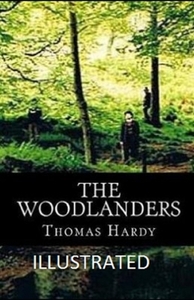You need to sign in or sign up before continuing.
Take a photo of a barcode or cover
dark
emotional
sad
slow-paced
Plot or Character Driven:
Character
Strong character development:
Yes
Loveable characters:
Yes
Diverse cast of characters:
No
Flaws of characters a main focus:
Yes
emotional
reflective
slow-paced
emotional
reflective
tense
slow-paced
emotional
reflective
sad
slow-paced
Plot or Character Driven:
Character
Strong character development:
Yes
Loveable characters:
Yes
Diverse cast of characters:
No
Flaws of characters a main focus:
Yes
emotional
reflective
sad
slow-paced
Plot or Character Driven:
Character
Strong character development:
Complicated
Loveable characters:
Complicated
Diverse cast of characters:
No
Flaws of characters a main focus:
Yes
relaxing
medium-paced
Plot or Character Driven:
Character
Strong character development:
Yes
Loveable characters:
N/A
Diverse cast of characters:
No
Flaws of characters a main focus:
Yes
inspiring
medium-paced
Plot or Character Driven:
Character
Strong character development:
Yes
Loveable characters:
Yes
Diverse cast of characters:
Yes
Flaws of characters a main focus:
Yes
emotional
medium-paced
As my first Thomas Hardy novel, I found this to be a thoroughly engaging, albeit forgettable, read. Generally well-paced and easy to read, the descriptive prose evokes a nostalgia of days gone by. Hardy depicts village life deeply entwined with the woods that surround it, a life which consists of, for some villagers, hard manual labour on the land, and deep social divisions between those who work for their keep and the landlords who own villagers’ homes, travel across the continent, and live hedonistically. But it is a life quite bereft of any of the comforts that we today take for granted; a time when letters are delivered by postmen on horse and buggy and one can walk for hours in woods nearby and lose their bearings. Yet, human behaviour, our follies and desires, our loves and heartbreaks, ambitions and purpose, duties and responsibilities, have changed but little, despite the length of time and advancements in technology, that separate us today from Hardy’s world.
A father’s responsibility to his daughter, that Mr.Melbury, the village’s timber-merchant, holds for his daughter Grace, to set her upon a path of education and then marriage to a good, supportive man surely continues to remain important in many cultures today. Class differences, too, like the ones in Little Hintock continue to lurk in our modern societies, with socioeconomic status being an important denoter of everything from education to health, rural communities being poorer on average than cities, and in our cities, young people poised to remain renters for much of their life, their lives at the mercy of landlords. So it is, that in Hardy’s world, the tale’s gentle and sacrificing hero, Giles Winterbourne, finds himself no longer to continue in the home rented and lived in his entire life.
The tale ends and begins with Marty South, a young observant woman and hard-worker, who has loved unrequited her Winterborne, Hintock’s cider and apple farmer and woodsman. Despite these two being minor characters, in some ways the story is centred around them, their stolid, conscientiousness the foils for the flightiness, whims, and deceivings of the characters Hardy focuses his plot on.
Though Hardy’s themes are timeless and relatable, its execution at least in this book leaves one with a sense of something missing – the glue that linkd the varieties of motions at play. One never quite understands the backgrounds or histories of the characters, what they did before the scenes unfold at Little Hintock, that made them the way they are. What makes brilliant Dr.Fitzpiers so flighty, at the helm of his fanciful whims, chasing after women with nary a thought for other than himself? He who “while despising Melbury and station, did not at all disdain to spend Melbury’s money, or appropriate to his own use the horse which belonged to Melbury’s daughter?” We learn about Fitzpier’s other lover, Mrs.Charmond’s brief acting career almost as an afterthought. What did this career look like? Why did she leave it – for money, surely, but money alone cannot make such a seemingly complex woman leave a profession. And how came she to be here? Without this depth, we have to take their whims at the narrator’s word, the why lost amidst the chaos that ensues.
As a result, the characters never become intimately ours, but remain as set pieces, the story frozen in time - an interesting, multilayered tale, but one whose intricacies will be easily forgotten by the reader over time.
A father’s responsibility to his daughter, that Mr.Melbury, the village’s timber-merchant, holds for his daughter Grace, to set her upon a path of education and then marriage to a good, supportive man surely continues to remain important in many cultures today. Class differences, too, like the ones in Little Hintock continue to lurk in our modern societies, with socioeconomic status being an important denoter of everything from education to health, rural communities being poorer on average than cities, and in our cities, young people poised to remain renters for much of their life, their lives at the mercy of landlords. So it is, that in Hardy’s world, the tale’s gentle and sacrificing hero, Giles Winterbourne, finds himself no longer to continue in the home rented and lived in his entire life.
The tale ends and begins with Marty South, a young observant woman and hard-worker, who has loved unrequited her Winterborne, Hintock’s cider and apple farmer and woodsman. Despite these two being minor characters, in some ways the story is centred around them, their stolid, conscientiousness the foils for the flightiness, whims, and deceivings of the characters Hardy focuses his plot on.
Though Hardy’s themes are timeless and relatable, its execution at least in this book leaves one with a sense of something missing – the glue that linkd the varieties of motions at play. One never quite understands the backgrounds or histories of the characters, what they did before the scenes unfold at Little Hintock, that made them the way they are. What makes brilliant Dr.Fitzpiers so flighty, at the helm of his fanciful whims, chasing after women with nary a thought for other than himself? He who “while despising Melbury and station, did not at all disdain to spend Melbury’s money, or appropriate to his own use the horse which belonged to Melbury’s daughter?” We learn about Fitzpier’s other lover, Mrs.Charmond’s brief acting career almost as an afterthought. What did this career look like? Why did she leave it – for money, surely, but money alone cannot make such a seemingly complex woman leave a profession. And how came she to be here? Without this depth, we have to take their whims at the narrator’s word, the why lost amidst the chaos that ensues.
As a result, the characters never become intimately ours, but remain as set pieces, the story frozen in time - an interesting, multilayered tale, but one whose intricacies will be easily forgotten by the reader over time.
I was warned before I started reading this that Thomas Hardy is a miserable bastard. Four chapters in and he was comparing winter mornings to dead babies so I can't disagree.
This wasn't a happy book but I did enjoy it. Hardy's prose are beautiful and the way he describes the forests and apple orchards really brings the setting to live.
I liked the characters for the most part. There are two typically "good" and "moral" characters and both get the saddest endings with one dying and the other doomed to a life of loneliness, shackled by their own faithfulness.
There are no real "bad" characters. They're judgmental and selfish and they ruin their own lives and the lives of those around them by making the wrong choices. Even the main villains of the piece have fully human motivations and flaws.
But yeah, Hardy is one miserable bastard and this is one miserable book.
This wasn't a happy book but I did enjoy it. Hardy's prose are beautiful and the way he describes the forests and apple orchards really brings the setting to live.
I liked the characters for the most part. There are two typically "good" and "moral" characters and both get the saddest endings with one dying and the other doomed to a life of loneliness, shackled by their own faithfulness.
There are no real "bad" characters. They're judgmental and selfish and they ruin their own lives and the lives of those around them by making the wrong choices. Even the main villains of the piece have fully human motivations and flaws.
But yeah, Hardy is one miserable bastard and this is one miserable book.




